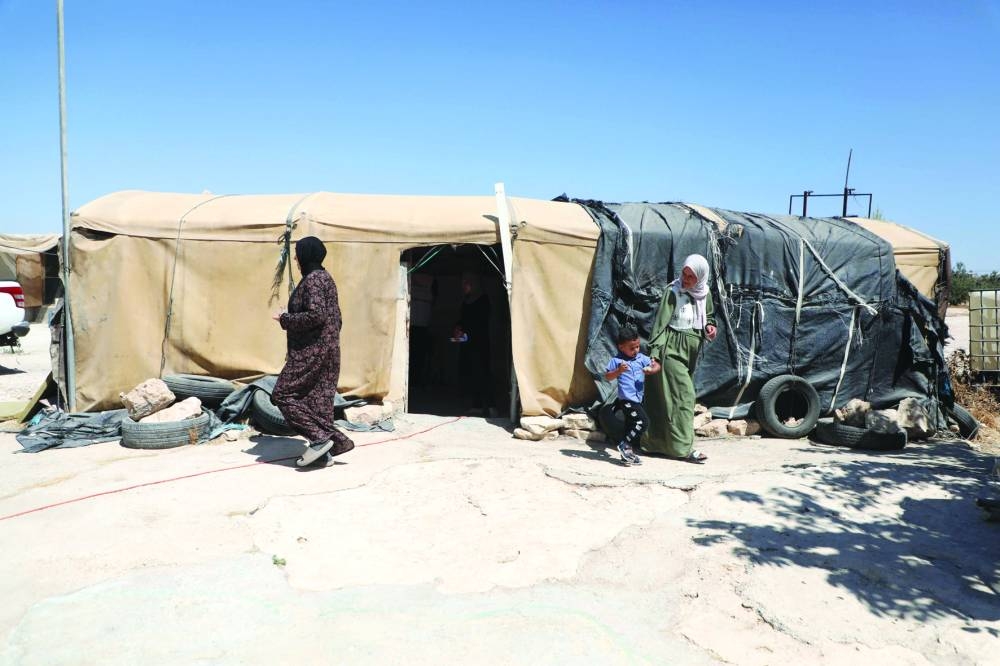The stress shows on the face of Samiha Ismail who since October first week last year has been stuck in her home in an occupied West Bank village that lives in constant fear of attack by Israeli settlers.
The day after the Hamas raid into southern Israel, settlers entered Susya, a hilltop village in the south of the West Bank, vowing retribution and “humiliation”, the 53-year-old Palestinian recalled.
More than nine months on, Ismail is among 450 inhabitants who spend most of the day indoors. Even their sheep are not allowed out of their sheds.
“Every time we take them to pasture, the settlers chase us,” the panicked Ismail said.
Instead, the sheep of Israeli settlers now dot the nearby hills.
Susya’s inhabitants say their livelihood has gone. One international aid group has sent counsellors to help Susya residents with their mental health.
“Before the war, we would have defended our land, but today nobody moves,” she said.
The settlers are armed and protected by the army, she added, and her husband and son have been “beaten up” several times.
Israeli authorities did not respond to AFP’s questions about violence in the region.
Since the start of the Gaza war, Israeli settlement of the occupied West Bank — considered illegal under international law — has hit new records.
Excluding annexed east Jerusalem, some 490,000 Israeli settlers live in the West Bank alongside some 3mn Palestinians.
In June, the Israeli government declared more than 12 square kilometres of the West Bank to be state land, the largest land appropriation since the 1993 Oslo Accords set out the foundations for land use in the territory.
Land that is declared as Israeli state property can be used for more settlements.
In addition, 25 settlement outposts — not even authorised by Israel — have sprung up across the West Bank since the start of the year, according to Peace Now, a settlement watchdog.
Men in military fatigues have meanwhile raided Susya at night, kicking down doors and looting property including donkeys and mules, locals said.
Some have even entered houses at night to intimidate residents. “Most of us no longer sleep at night,” Ismail said.
Mohamed al-Nawajaa, 78, was born before the expulsion of hundreds of thousands of Palestinians when Israel was created in 1948 — known as the Nakba, or catastrophe, to Palestinians.
“After October first week last year, they took all these hills. We were kicked out in 1948, 1967... and now again in 2024. But this land is ours,” the shepherd said, his head wrapped in a traditional keffiyeh scarf.

Palestinian women walk outside a Doctors Without Borders (MSF) charity tent clinic in Susya village, in the south of the occupied West Bank.
